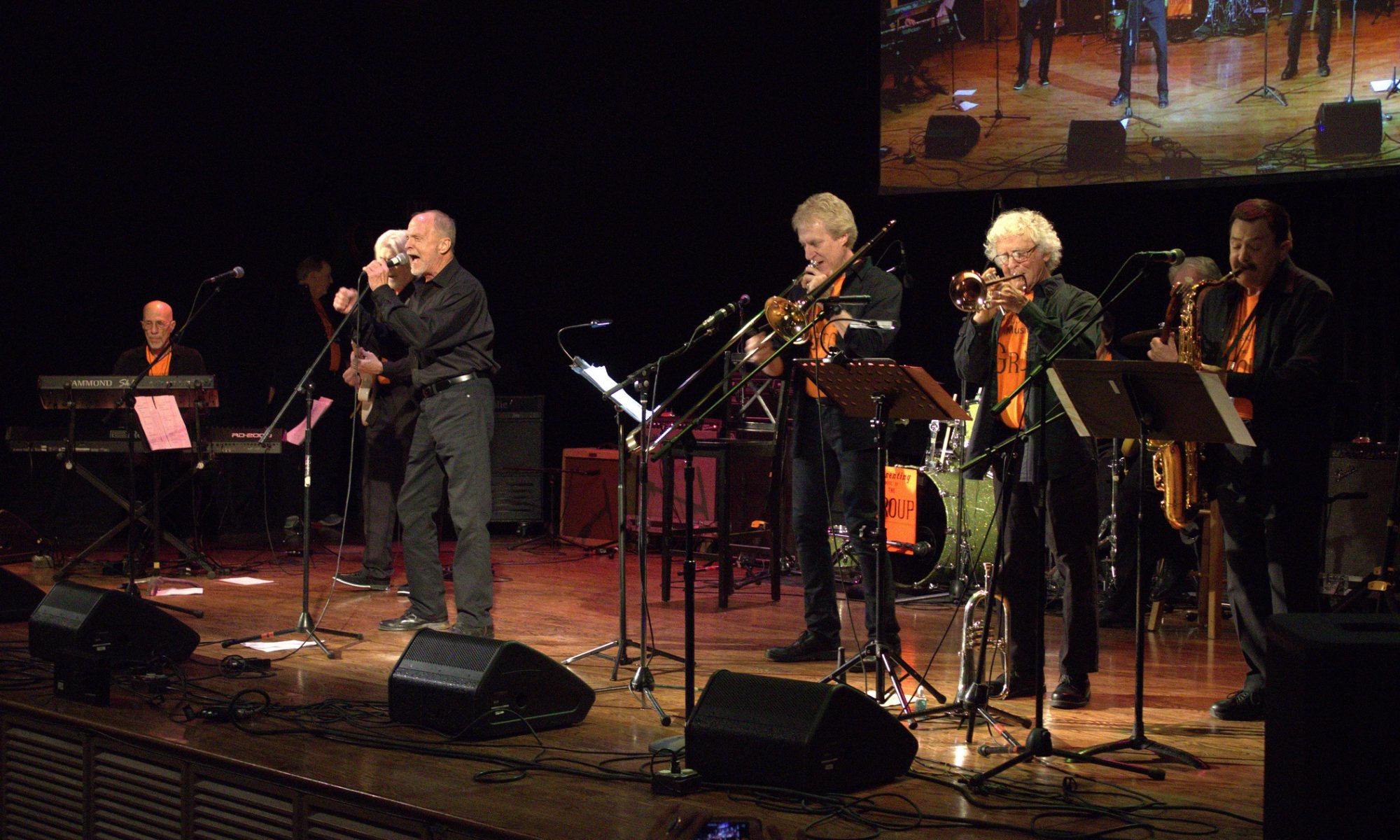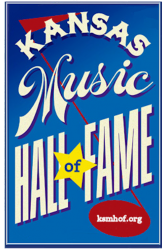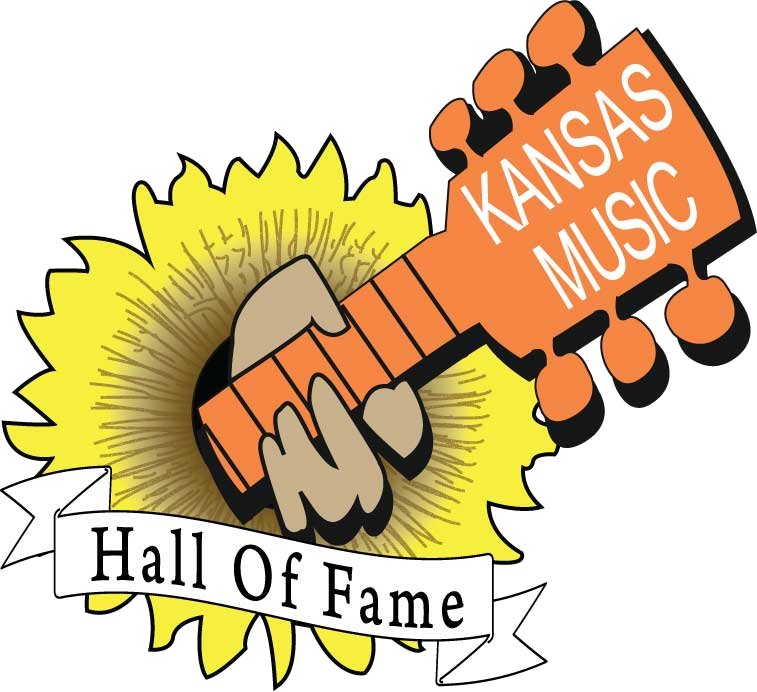 |
|
||||||||||||||||||||||||||||
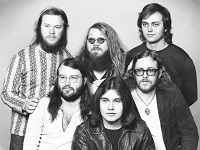 |
The Hays version of the Dinks was looking for a new direction and a chance to get into the recording studio. Dick Dole (promoter/agent) contacted Michael Kerns (flute/sax) from Colorado to move to Hays and join the Dinks. Michael’s band from Colorado, Beast, had dissolved, so the Dinks decided to pick the name up and became Beast of Hays in 1970. The band consisted of Michael Kerns, Dean Dietz (lead vocals), Bruce Brown (bass/vocals), Donnie Wierman (guitar/vocals), Mike Schmidt (drums) and Dana Messing (keyboards/vocals). They played over a twelve state area in the Midwest for a period of four years. Beast had three recording sessions; two in Clovis, New Mexico under Norman Petty (in the same studio used by Buddy Holly), and a later recording session in Boulder, Colorado. |
||||||||||||||||||||||||||||
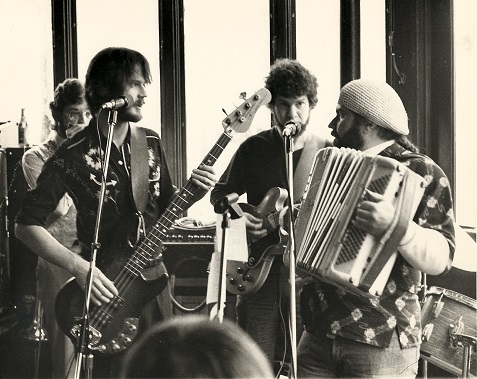 |
Inspired by zydeco accordion legends Clifton Chenier and Rockin’ Dopsie, Richard Lucente rediscovered his long abandoned childhood instrument on extensive travels in Creole Louisiana. Soon after he was afforded the opportunity, at age forty, to start his first band. Lucente’s prolific songwriting skills enabled the ever-evolving band to present an adults only, dance friendly original blend of zydeco, blues, and R&B to its considerable and rabid fan base. It also supported the release of five successful albums composed totally of original songs. The band’s annual Crawfish Fiesta routinely drew ten thousand fans. The band’s induction into the 2014 Kansas Music Hall of Fame is dedicated to the late, great Ed Toler, bassist for seventeen years of the band’s existence. |
||||||||||||||||||||||||||||
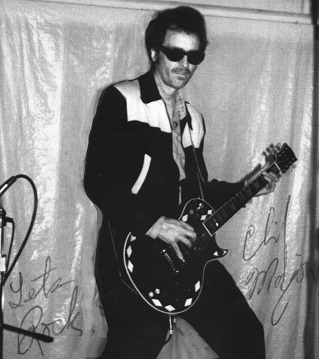 |
Clif Major began a lifetime of soulful and stylistic guitar mastery as a child in the 1950s. Among Clif’s bands discography and achievements are the Outcasts (band) “South Wind” (1983 winner of the Telluride Bluegrass Competition), the Del Reys (band was given a five-star endorsement in Guitar Player magazine), and the Jukes (band). He owned C Major Guitars & Banjos and opened C Major’s Rockin’ Daddy’s, a cabaret, in 2004 with Kathy Roush Major. In 2013 a Wichita State University special collection was established as the “Clif Major and Kathy Roush Music Collection,” consisting of their collective music history and memorabilia, intended for regional music history research. Clif passed away in June 2014. |
||||||||||||||||||||||||||||
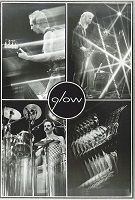 |
Formed in 1977 by John Kessler, (keys and vocals), and Philip Lincoln Smith, (drums and vocals), Glow, (originally named Checkmate), created a powerful blend of original Progressive Rock, Jazz Fusion and Pop Music. Guitaris Brian Milam joined in 1978, and propelled the band into the public consciousness with his incendiary chops. Bassist Paul Davis joined in 1981. All of the members contributed to the band’s compositions, but it was the songcraft and compositional daring of Kessler and Milam that proved most succesful. Various other great musicians were part of Glow, but the four-piece group of Kessler, Milam, Smith and Davis is remembered as a “musician’s band”: uncompromising, fearless, and unique. Glow took first place in the KY-102 “Best of Home Tape” competition in 1983, were finalists in the Miller High Life “Rock-to-Riches” contest, and were also on KKCI’s “Moonshine II” LP. Their original music attracted the organizers of the 1984 Montreux Jazz Festival in Switzerland, and that summer, Glow performed in front of enthusiastic audiences on two of the festival’s stages. |
||||||||||||||||||||||||||||
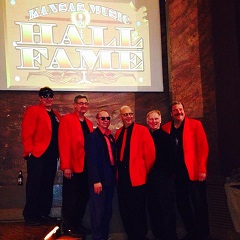 |
When film maker George Lucus directed the movie, American Graffiti, during the 1970s, he could not have predicted the wave of nostaglia that swept the United States as a result of the smash movie hit. It was during this time that a group of musicians from Victoria, Kansas formed the group, Jimmy Dee & the Fabulous Destinations in 1975. Little did they know that their high energy show, featuring major hits from early 1960s, would propel the band into one of the most popular groups to ever perform in western Kansas. Forty years later, the band is still going strong, playing selected dates throughout the year with tremendous fan support. |
||||||||||||||||||||||||||||
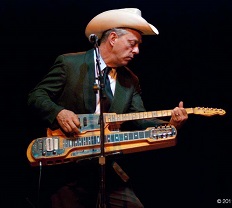 |
With his unique voice, more unique songwriting craft, and even more unique invention, the double necked “Guit-Steel”, there has absolutely never been anyone like Junior Brown. He’s had a major label signing (Curb), a Country Music Association Award (CMA), three Grammy nods, a Bluegrass Music Association Award (IBMA) with legend, Ralph Stanley, duets on record and video appearances with everyone from Hank Thompson and George Jones to The Beach Boys and Stone Temple Pilots. Then came movies, TV shows, commercials, and multiple appearances on late night TV …even a cameo appearance in SpongeBob Squarepants! He was born in Cottonwood, Arizona, and had his first major musical employment with fellow Kansas Music Hall of Fame inductee Billy Spears in Lawrence, KS. |
||||||||||||||||||||||||||||
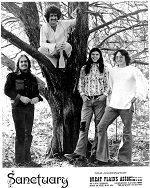 |
Sanctuary was formed in 1971 in Lawrence by Dennis Loewen, lead singer and mastermind of the Fabulous Flippers. In association with Mike Murfin, Dennis, along with Minneapolis singer-songwriter phenomenon Roger Bruner, teamed up largely to do original material. Both Dennis and Roger were already accomplished performers. At this point Norman Weinberg (drums) and Eric Bikales (flute and keyboards) joined the team, and Sanctuary was born. |
||||||||||||||||||||||||||||
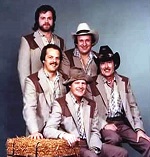 |
The Wichita Linemen formed in October 1969 and played their first dance in November 1969 at the NCO Club on McConnell Air Force Base in Wichita. During their thirty year career of playing dances and shows (mostly in Kansas) they averaged over two hundred performances per year, playing from Wichita, north to Nebraska, south through Oklahoma, east to Kentucky and Tennessee, and as far west as Los Angeles. In the beginning there were two disc jockeys in the band from KFDI radio station in Wichita: Don Powell (steel guitar), and Don Walton (vocals). Greg Stevens (bass guitar. banjo, saxophone, keyboards, harmonica and fiddle), Carl Hendricks (lead guitar), and Robin Harris (drums) rounded out the band. All members were vocalists. This was the original group that played “in the rowdy milieu of The Western Swinger,” a Wichita nightclub. In the ensuing years keyboards and fiddles would be added, and various other great musicians would pass through the ranks. The Wichita Linemen’s last dance and show was New Year’s Eve 2000 in Ruidoso, New Mexico, with the Charlie Daniels Band. |
||||||||||||||||||||||||||||
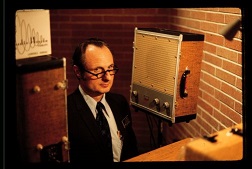 |
Ed Down started the Audio House Recording Studio in 1951. The company was originally located in his house, hence the name Audio House. His specialty was on-location recording. He recorded concerts for colleges, public schools, and music camps, selling records of the concerts as souvenirs for the students. Ed invented a way to imprint album covers so he could do small batches of records at a reasonable price. In 1962 Audio House recorded the soundtrack for the movie Carnival of Souls produced by Herk Harvey which has since become a cult classic. (The movie was filmed at Lawrence locations, the Lecompton Bridge, and in Salt Lake City, Utah.) Ed was an accomplished disk mastering engineer, adding stereo mastering capability by 1969. He made a point of hiring women who were trying to get back into the work force after raising a family, and by 1977 he had ten full or part-time employees. In January 1978 Ed had a heart attack, dying peacefully in his sleep. |
||||||||||||||||||||||||||||
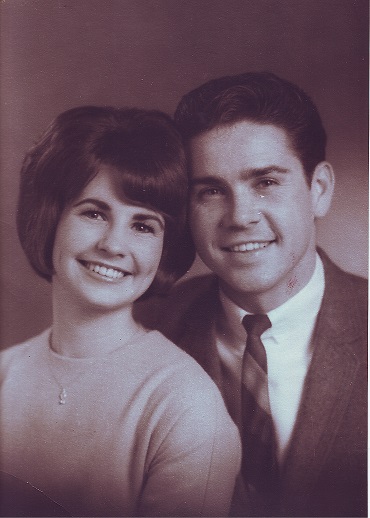 |
This brother and sister act from southern Kansas sang together at their mother’s insistence and encouragement. They honestly couldn’t understand why people responded to them, but respond they did. When songwriter Bill Post returned from California he took an interest in the two youngsters, producing a record entitled Hotrod Weekend, which climbed into the regional top ten and received national airplay. A few years later Donnie and Diane Harper won Wichita radio station KFDI’s talent contest. First place was a recording session, and “Little Bitty Mini Skirt” reached number eleven on KFDI’s music charts. Donnie and Diane set attendance records at local fairs and shows and were very well known in the southern Kansas/northern Oklahoma regions. An album was released in 1972 and was re-released on CD in 2013. Bonus tracks include all their singles, plus many unreleased gems by the duo including six songs with Conway Twitty and the Blue Boys. |
||||||||||||||||||||||||||||
